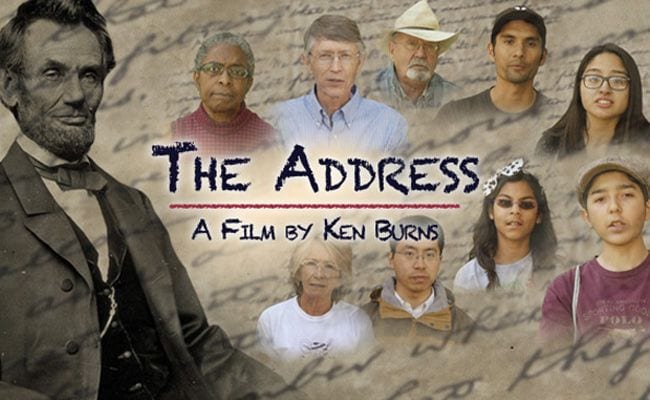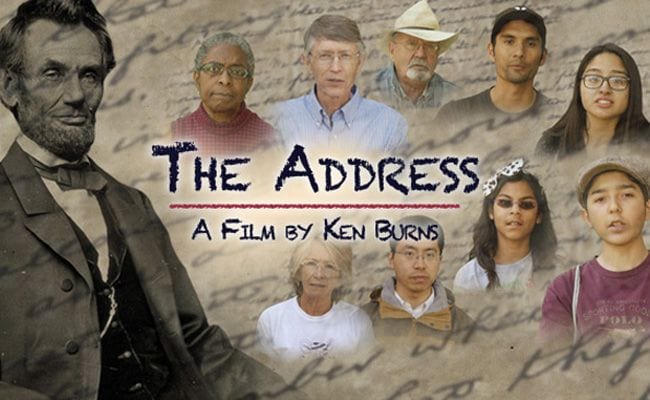
Ken Burns’ The Address isn’t the greatest documentary ever made, but it’s an important one.
The film follows 50 boys from ages 11 to 17 as they struggle to memorize the Gettysburg Address for their peers at Greenwood School in Putney, Vermont. You’ve never heard of the boys, the school, or the small New England town in which they reside, but by the film’s end, you’ll be moved by their courage and perseverance.
On the surface, The Address forcefully reminds the viewer of the importance of Abraham Lincoln’s address, delivered on Thursday, 19 November 1863. As the students are taught about Civil War history and the true meaning behind Lincoln’s words, the hope is that they gain an understanding of America’s brutal past to ensure that such atrocities are never committed again.
As we probe deeper, however, we soon discover that Burns wants to provide insight into those who suffer from learning differences like dyslexia and attention deficit hyperactivity disorder. Greenwood School specializes in guiding young boys whose personal, academic, and social progress is hindered by learning disabilities, and throughout the film, we see how important the school is to their success.
In order to challenge the students and show them that they can conquer the many hardships they’ll face, the school requires each student to memorize and recite the Gettysburg Address before graduation. Some students master the speech in their first year, while others take more time. By having the students comprehend an important chapter in American history, the school ultimately allows the students to learn about themselves.
The Address works as entertainment, but it’s also educational. On the one hand, viewers will want to challenge themselves and see if they, too, can memorize and recite the Gettysburg Address. On the other hand, parents and educators will gain a fuller understanding of individuals who deal with learning differences on a daily basis.
As the film demonstrates, these boys are incredibly curious and willing to learn, but they often struggle to overcome their afflictions. Moreover, most of them are bullied and feel ostracized, which calls attention to American culture’s lack of compassion toward those who are born different. Nevertheless, each day the students work hard and try again, until the powerful climax of the film in which they recite the speech in front of their parents, teachers, and fellow students in suits and ties.
Throughout my life, I’ve struggled with public speaking. Something about it always felt awkward and judgmental to me, and whenever I speak and others become silent to hear my words, I am overcome with feelings of dread. The boys at Greenwood School inspire me to work through this problem of mine.
They also inspire me to grasp the true meaning of Lincoln’s seminal speech. Like most Americans, I have a basic understanding of the Civil War and am aware that slavery was terrible, but I can’t really tell you what comes after “four score and seven years ago”. Greenwood School goes out of its way to teach their students that a comprehension of the material is more important than grades or test scores, and that there’s no point to public education if students don’t walk away with useful lessons for life.
The only extra provided on the DVD is a brief video of director Steven Spielberg reciting the Gettysburg Address. It isn’t much, but it highlights the significance of the film, and is part of Burns’ greater initiative to get people across America to learn Lincoln’s words. (“Press Release”PBS)

